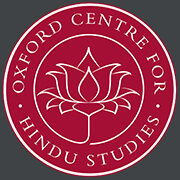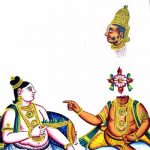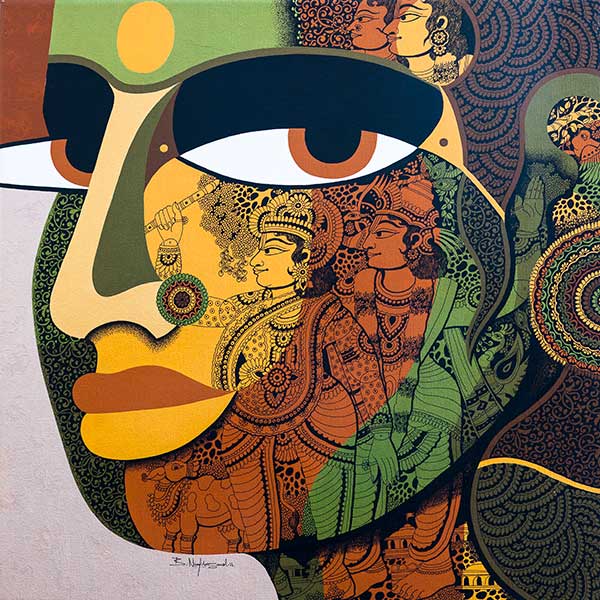Mahabharata: Lecture Series
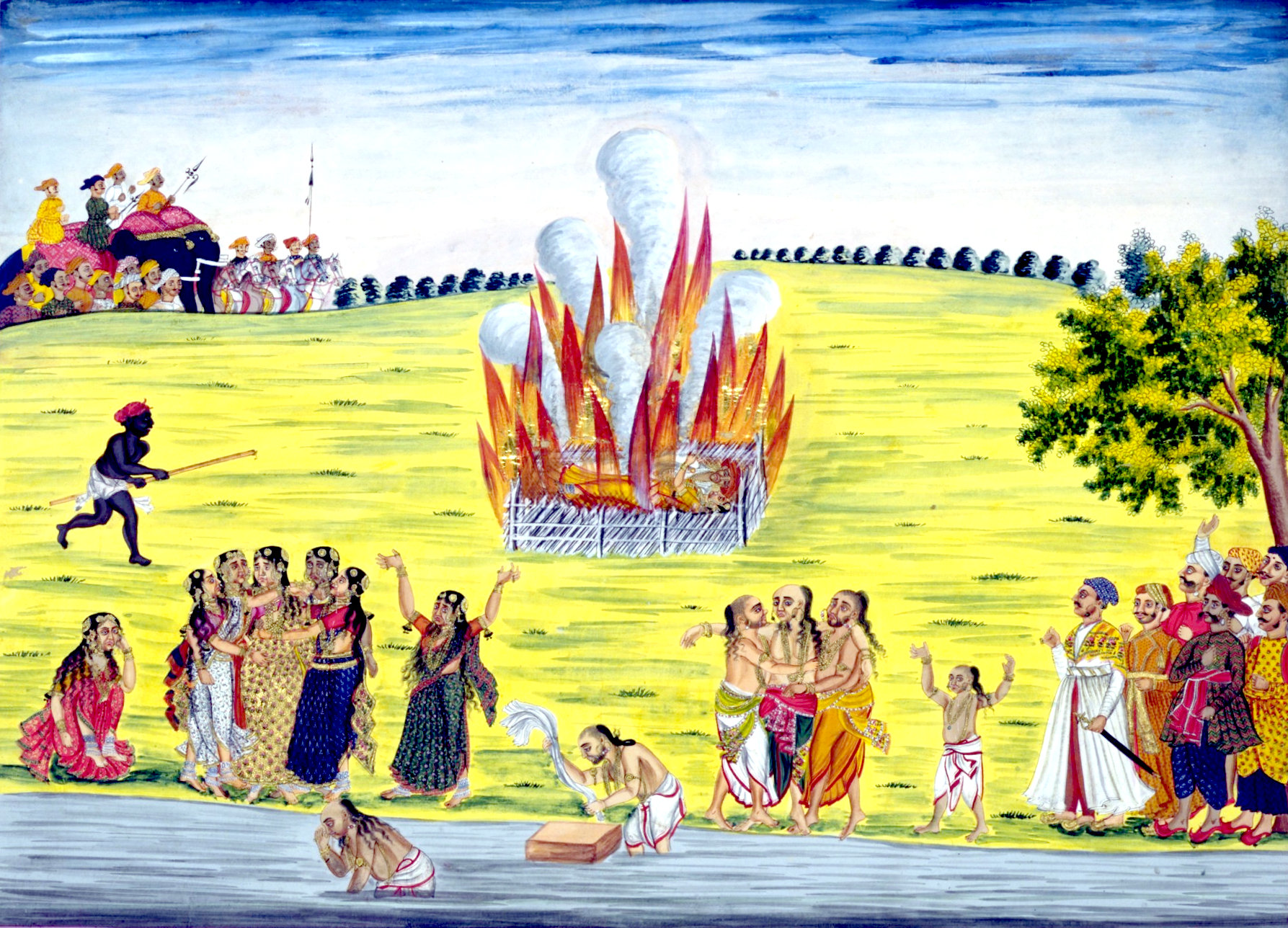
The Mahabharata is possibly the longest poem ever composed and its scale is truly daunting. Not only does it relate an extensive narrative tale, with twists, turns and numerous sub-plots, but it also contains passages of direct religious teachings that are considerably longer than all the major Upanishads put together.
Join some of the world’s foremost Mahabharata scholars as we explore this fascinating text.
This lecture series gives you the opportunity to revisit one of our Weekend Schools.
The lectures are all available immediately and permanently.
There is a user forum as well, but unlike our Online Courses, these aren’t moderated and there are no assignments.
£95
Mahabharata: Lecture Series
Doing Things With Our Bodies: The Pleasures of Being Alive in the Shantiparvan
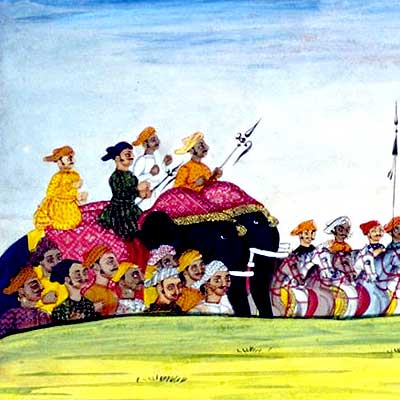
In Book Twelve – the longest in the Mahhabharata – everyone takes a break to talk out deeper truths behind the wild events that have taken place in the story. The conversation between Yudhisthira and the sages suddenly falls through to a rich collection of stories about ancient kings, magic, and fables full of wisdom. In many ways it is really a book about what happens when you’ve won the war and have a chance to choose your life. In this talk we explore the different kinds of mastery and liberation that it offers, drawing on elements of Yoga and Ayurveda along the way.
Tutor: Dr Jessica Frazier
The Mahabharata as the Story of Janamejaya
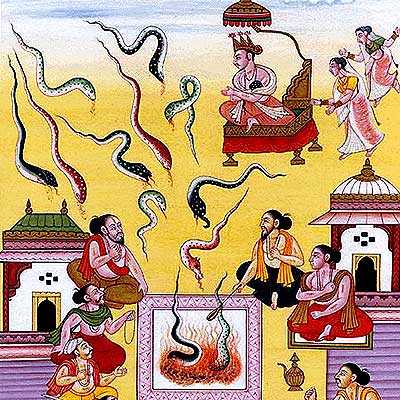
The Mahabharata is usually known as the story of the Pandavas and Kauravas, but this talk focuses on the story of King Janamejaya, at whose snake sacrifice the story of the Pandavas and Kauravas is told. Janamejaya’s story has been poorly appreciated because much of it is told in the Harivamsha, the last part of the Mahabharata, which most modern Mahabharata commentators have ignored. Janamejaya’s story has a happy ending and demonstrates the transformative effect of Vyasa’s text. By implication, similar effects might be anticipated for other audience members.
Tutor: Dr Simon Brodbeck
The Mahabharata’s Harmful Arts: Creating Deadly Beauty at the War’s Margins
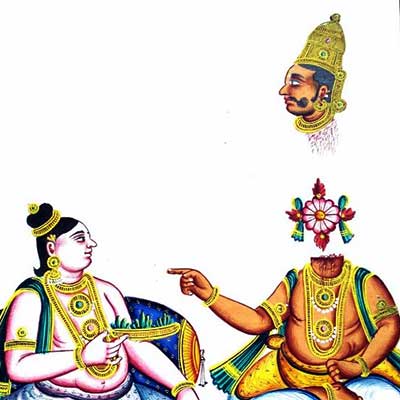
Among the most striking episodes of India’s great epic are incidents in which visual arts are used for no good. This talk treats three such occurrences – in the buildup to, at the brink of, and during the bereavement after the poem’s central war. Seen in light of preceding events, these harmful artistic instances are the means that the Mahabharata employs to explore, both cognitively and emotionally, exceptions to classical Indian normative expectations for sovereignty, divinity, and family.
Tutor: Prof. Shubha Pathak
Where are the Women?

Notwithstanding that the Mahabharata is an old text representing patriarchal values, it features some famously assertive women. In this discussion, we take note of where we find women in the Mahabharata, and how they occupy themselves. In what ways is the Mahabharata a story about women, and how do women shape the direction of the tale?
Tutor: Prof. Arti Dhand
Is the Mahabharata a Vaishnava Text?
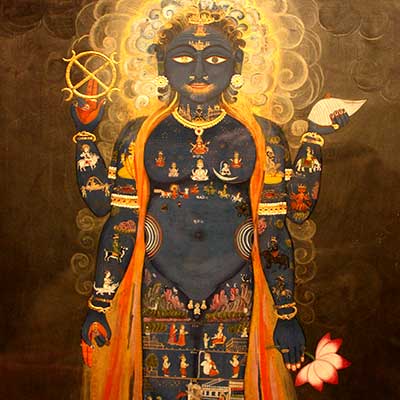
One of the challenges to understanding the Mahabharata is the identification of its principal theological frame of reference: does it have a single mythology? Is it a Vaishnava text? Krishna is among the most important characters of the epic and in many respects is its central deity. However, other structuring theologies of the text point back to a Vedic and Indo-European past, while yet others point forward to mythic structures characteristic of later Puranas. This lecture explores the place of Krishna in the Mahabharata and particularly the relationship of Vaishnava to other theologies of the epic.
Tutor: Prof. Christopher Austin
The Mahabharata as a Treatise on Dharma
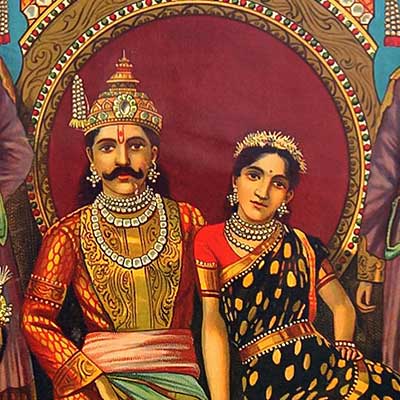
Dharma is certainly a central theme of the Mahabharata; it repeatedly explores the ways in which dharma can be understood and highlights the tensions that arise from differing interpretations of dharma. What is dharma? Is it the obligatory duties of one’s social class? Is it the pure virtue exemplified by Yudhisthira? Is it the rules laid down in the dharma-sastra passages of the Mahabharata? Is it the ritual acts of the Vedic tradition? Or is it the path to liberation from rebirth revealed in the teachings found in the later books of the Mahabharata? In this session, we will consider each of these understandings of dharma as they are presented in the Mahabharata, and try to highlight the reconciliations and contradictions revealed within its eighteen parvans.
Tutor: Dr Nick Sutton
Was the Mahabharata a popular text in Early Historic India?
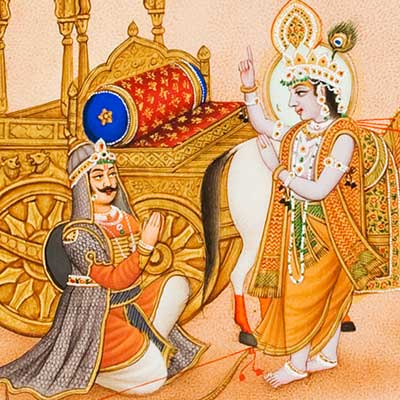
In contemporary India the Mahabharata remains an extremely popular text which has been reworked into Bollywood and Doordarshan versions as well as many popular retellings in literary forms. But when did it become popular and what would popularity mean in this context? We find some awareness of its popularity in the clearly identifiable passages in Pali literature directly referring to the Mahabharata. The Jatakas were popular texts and these and other Buddhist texts such as the Lalitavistara can be used to determine some measure of the Mahabharata’s popularity in Early Historic India.
Tutor: Dr Greg Bailey
Yudhisthira’s Asvamedha in the Mahabharata
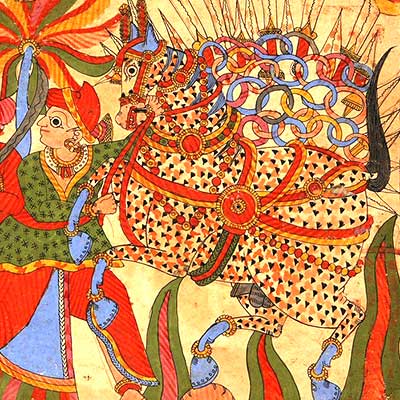
This talk will focus on the tale of the horse’s tour in Yudhisthira’s asvamedha (horse sacrifice) in book 14 of the Mahabharata, the first time such a literary project was attempted in Sanskrit literature. We look at how vedic ideas were reworked in the Mahabharata’s asvamedha. We also consider the actual journey the horse takes, which ultimately involves an approximate circumferencing of ‘India’. I shall suggest that while the Mahabharata makes use of the cosmology of the horse’s journey in the vedas, by giving the tour concrete geographic definition, the Mahabharata‘s horse sacrifice becomes a vehicle for a expressing the possibility of India as a potential sovereign unit. Again, this appears to be a peculiarly Mahabharata innovation that reflects the cultural ambitions of its authors.
Tutor: Dr Adam Bowles
Dangerous to Auspicious: The Transformation of the Telugu Mahabharata
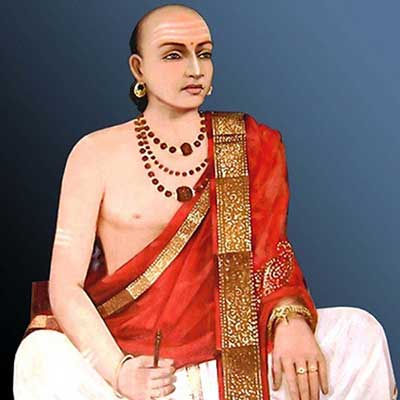
This talk focuses on the Telugu Mahabharata by the eleventh-century poet Nannaya, who is revered as the very first poet of Telugu literature. While the Sanskrit Mahabharata is a dangerous text associated with the conflicts of kingship, the Telugu Mahabharata is an auspicious retelling. We discuss how Nannaya’s innovative use of vernacular meter, style, and form, helped to transform the Mahabharata from a cosmopolitan text to a regional one, giving deep local roots to an unstable epic, rendering it auspicious.
Tutor: Prof. Harshita M. Kamath & Prof. Ilanit Loewy Shacham
Exploring the Mahabharata
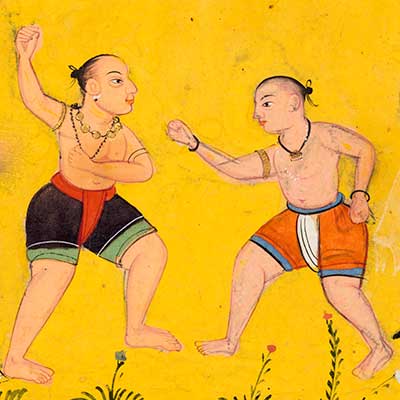
This talk will take up the structure, purpose and use of the Sanskrit Mahabharata in South Asia. It will explore aspects of the original Sanskrit texts, as well as related traditions from the deep past to the modern world. It will explore why people tell and re-tell religious stories across the generations. It will show how the Mahabharata is many voiced and multi-purpose by design, as well as a consequence of the ways in which it has been used by different individuals and groups of people over time. From ancient India to the colonial stage, via medieval Kashmir and Indian television broadcasts of the eighties and early nineties, we will see how the text has been lived with and lived through by numberless South Asians from every walk of life.
Tutor: Prof. James Hegarty
Your Tutors
Dr Christopher Austin
Christopher R. Austin is an Associate Professor of Religious Studies at Dalhousie University in Halifax, Nova Scotia, where he lectures widely on the religious traditions of India, China, Japan and Tibet. His research focuses chiefly on the Sanskrit epics, Krishna and his son Pradyumna, and early Vaishnavism.
Dr Greg Bailey
Greg Bailey, formerly Reader in Sanskrit, is an Honorary Research Fellow in the School of Linguistics and Culture, La Trobe University, Melbourne. He has published translations and studies of the Gaṇeśa Purāṇa, Bhartṛhari’s Śatakatrayam and books on early Buddhism, Australian politics and many articles on Sanskrit literature.
Dr Adam Bowles
Dr Adam Bowles is Senior Lecturer in Asian Religions at The University of Queensland in Australia. He has published three volumes concerning the Mahabharata. Two of these are translations of the Karṇaparvan published with the Clay Sanskrit Library. The other, entitled Dharma, disorder and the political in Ancient India: The Āpaddharmaparvan of the Mahābhārata, is a study of one of the didactic corpora belonging to the Santiparvan. He is also currently working on a large project titled The Queensland Atlas of Religion and begun translating the Critical Edition of the Mahabharata’s Anusasanaparvan.
Dr Simon Brodbeck
Simon Brodbeck studied at the University of Cambridge and at the School of Oriental and African Studies, University of London. He is a Reader in Religious Studies at Cardiff University, where he has worked since 2008. His books include The Mahabharata Patriline and Krishna’s Lineage: the Harivamsha of Vyasa’s Mahabharata.
Dr Arti Dhand
Arti Dhand is Associate Professor of South Asian Religion at the University of Toronto. Her research interests include the Sanskrit epics, the Ramayana and The Mahabharata, and she is the author of Woman as Fire, Woman as Sage. Most recently, she is also host of The Mahabharata Podcast.
Dr Jessica Frazier
Dr Jessica Frazier has degrees in Sanskrit, Religious Studies, and Philosophy of Religion from Oxford and Cambridge. Dr Frazier edits the Journal of Hindu Studies and teaches Hinduism and other religious traditions at Oxford University. She recently published Reality, Religion, and Passion, a comparison of Western and Indian approaches to religious truth.
Prof. James Hegarty
James Marcel Hegarty is Professor of Sanskrit and Indian Religions at Cardiff University. He is fascinated by the history of religions in South Asia. He has written on Hindu, Buddhist, Jain, Sikh and Christian traditions in the region. In particular, he is interested in how religious texts, and especially religious stories, are used by South Asians to communicate and negotiate their understanding of themselves and the world around them. This includes not just what we ordinarily associate with religion, such as ideas of god or gods, or the nature of the good life, but also other forms of knowledge, such as the way in which the past is understood, or political life, or language itself.
Dr Harshita M. Kamath
Harshita Mruthinti Kamath is Visweswara Rao and Sita Koppaka Assistant Professor of Telugu Culture Literature and History at the Department of Middle Eastern and South Asian Studies at Emory University. Her research focuses on Telugu performance and literary performance traditions.
Dr Shubha Pathak
Shubha Pathak, Associate Professor of Philosophy and Religion, American University, interprets epic myths from India, Greece, and Rome. Having authored Divine Yet Human Epics: Reflections of Poetic Rulers from Ancient Greece and India, she is a Steering Committee member of the American Academy of Religion’s Mahābhārata and Classical Hinduism Seminar.
Dr Ilanit Loewy Shacham
Prof. Ilanit Loewy Shacham is Assistant Professor at the Department of East Asian Studies at Tel Aviv University. Her research focuses on premodern and classical South Asian literature in Telugu and Sanskrit.
Dr Nick Sutton
Nick is the Director – and the heart and soul – of the OCHS Continuing Education Department. He is a dedicated teacher with decades of experience in making sometimes-confusing traditions relevant. He has created over a dozen online courses and is working on many more. He has written translations and commentary on Bhagavad Gītā and the Yoga Sūtra. Nick received his Phd from Lancaster University (1995). His thesis was on the religious teachings of the Mahabharata.
